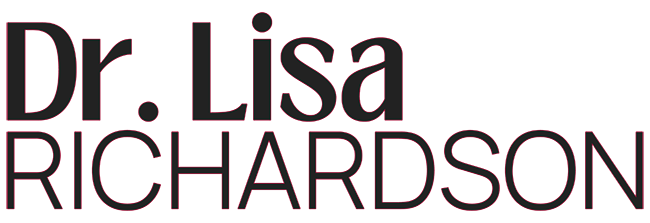As a consultant, your primary business is knowledge. Your purpose is to provide professional advice and problem-solving strategies to other businesses. However, unlike higher ed classrooms, where students will show up no matter what you do, service providers need a robust marketing and sales strategy to convert your knowledge into revenue.
In the world of professional services, a powerful sales strategy can be the difference between a thriving business and an endless cycle of selling, scrambling to complete the work, being comfortable for a day or three, then racing back to selling when funds get low again.
To help you get off the feast-and-famine treadmill, let’s delve into the importance of a sales strategy, the different types of sales strategies, and how to build a sales plan. While we’ll focus on selling professional services, sales and marketing strategies are two sides of the same coin, so we’ll also discuss marketing.
Head to Head: Sales vs Marketing
Before we develop your sales strategy, we need to understand the difference between sales and marketing. Sales involves persuading prospective clients to buy your services—it’s about sealing deals. Marketing, on the other hand, is more about crafting the perfect appeal to the right clientele by offering suitable services with substantial benefits. It’s about sparking demand.
Several tasks can either fall under marketing or sales in different organizations. Take lead generation, for instance. Some companies assign this job to the sales team, while others delegate it to the marketing squad. The same goes for preparing sales documents and presentations. For you solopreneur consultants out there, all these hats are yours.
As much as we teach about audience research, the critical point here is that your strategy for sales and marketing in professional services is more than just about who your target audience is. Yes, the services can be B2B or B2C, but the principal difference stems from the nature of the service and the relationship between the provider and client.
What You’re Really Selling: Trust and Expertise
A minimal level of trust is crucial in any business interaction. However, trust takes center stage in professional services. Clients often share sensitive information and look to us for advice, hence the need for a strong trust bond.
Of course, prospective clients are investing in your expertise. Your background can be a game-changer during the final selection. But it’s not just about your expertise; it’s also about earning and cementing their trust.
This trust factor is why your brand experience matters. You’re creating expectations among prospective clients and reinforcing those expectations as you onboard them and manage their projects.
Understanding how potential clients perceive their relationship with you can make or break your marketing and sales strategy, so give serious thought to how you make deals happen.
Why You Need a Sales Strategy
A sales strategy is a roadmap that directs your sales team’s actions, goals, and focus. It enables your team to understand which goals to prioritize and which activities to engage in. A well-structured sales strategy helps enhance their overall productivity and outcomes.
Here are some reasons why having a robust sales strategy is crucial:
Consistent Messaging
Your sales strategy helps your team deliver a consistent message to prospects, partners, and customers. This consistency builds trust and makes your sales efforts more effective.
Optimized Opportunities
With the right sales strategy, you can target the right prospects for your consultancy and tailor your approach to meet their unique needs. This guidance will help you and your team maximize every sales opportunity.
Save Precious Resources
Your sales strategy outlines your priorities and available human and financial resources. This roadmap helps your sales team use their time, effort, and other resources more efficiently, allowing them to focus more on high-potential deals.
Marketing Strategies
In marketing or sales, one size does not fit all. For the best results, tailor your messaging and approach to your client’s unique needs and your team’s strengths. Generally, marketing strategies are usually categorized as outbound and inbound.
Outbound Marketing Strategy
Outbound marketing strategies are traditional advertising methods, including radio, TV, print, and digital ad placements. Companies base their strategy on the seller, not the customer. Outbound marketing (and sales) often involve cold calls or emails, direct mail, and other cold prospecting techniques. Daily success metrics are based on the quantity of connections the ads make, not the quality of the leads they generate.
As much as we may complain about ads as consumers, business success requires a blended multichannel marketing and sales strategy, including some outbound marketing.
Inbound Marketing Strategy
On the other hand, inbound marketing strategies base their integrated processes on buyer actions. Content marketing, for example, helps buyers uncover problems hidden in their day-to-day activities and potential solutions for those issues. This approach creates a seamless buyer experience since sales and marketing are blended throughout the journey.
What Do Sales Strategies Look Like in Real Life?
If this is your first business, you may not know what sales processes look like in practice, even if you know you’ve been sold to in the past. Here are some examples of sales strategies you might see in other firms or select for yourself.
Freelance Francine
You know Fran. She’s the solo consultant and reluctant salesperson in her firm. The vast majority of creative B2Bs and technical consultancies start here. The professional doing the work also sells the service, and the client’s trust comes from knowing just who they’ll be working with. It’s easy to get started but difficult to sustain indefinitely. Fran’s sales channels would include speaking engagements, webinars with special offers, or cruising target Facebook groups and responding to “I’m looking for…” posts.

The challenge comes from worrying that the time you spend networking and selling could be better spent doing the work you currently have. On the other hand, if you’re not filling the pipeline, there won’t be income left after you hand off the last set of deliverables. It’s like starting from scratch over and over again.
For Fran (and you), a comprehensive content marketing strategy is how to stay connected to new opportunities even when you can’t be face-to-face.
Industry Expert & Sales Master Shay
When your industry is highly technical, competitive, or regulated, having someone dedicated to representing your company who is also an expert in the field is a golden opportunity. Shay is your go-to guy.

He can authentically speak to your prospective client’s experience and needs and highlight how your unique expertise is required to effectively address those needs. He guides them step-by-step through the sales process and keeps in touch to make sure they’re doing well—up to and beyond their expectations and upgrade timeline.
However, this approach is expensive because a professional closer like Shay is not cheap. Therefore, the Sales Master isn’t your strategy unless the deals are worth the investment, such as in government contracts and commercial real estate.
The Growth Hybrid: Francine & Friends
If you’ve ever wondered what the heck a “business developer” actually does, today’s your lucky day. Business developers are salespeople who generate, qualify, and nurture leads but lack the technical expertise to close the deal.

Business developer Brian hands Fran the warmed-up lead so she can explain exactly how the solution works and set expectations for success. While Brian will still need to be compensated well for his work, he’s not nearly as expensive as Shay.
The business development model works well with firms that have a defined onboarding process and account management strategy so that new clients don’t lose confidence after the handoff. Expert Fran builds trust as she takes over the sale, but fumbling the payment flow or follow-up can kill an otherwise closed deal.
Building Your Sales Strategy
Developing your sales strategy involves systematically integrating various factors, such as organizational goals, customer profiles, team competencies, demand generation plans, performance tracking, and sales activities. Let’s examine each step.
Setting Organizational Goals
Setting clear and tangible goals is the first step in creating a sales strategy. Involve cross-departmental stakeholders and create SMART (Specific, Measurable, Attainable, Relevant, Time-bound) goals to reduce confusion when reviewing the plan.
Creating an Ideal Customer Profile
A detailed buyer persona profile of your target client is essential in developing both marketing and sales strategy. Investigate target segments, review your market research, and create a clear value proposition for this sales campaign to attract ideal clients to your consulting firm.
Building a Stellar Sales Team
An effective sales strategy needs a strong sales team. Whether that’s you, Shay, or Brian, invest in hiring, onboarding, and retaining talented professionals. Create processes for hiring new members that showcase how amazing it is to work with you, develop sales onboarding and training programs that reinforce your appreciation of their work, and create a motivational compensation and rewards plan.
Demand Generation Plan
Once you have your team in place, it’s time to create a demand-generation strategy—and for your content marketing team to shine! The demand-gen approach could include paid social acquisition channels, e-books, webinars, podcast appearances, and other tactics.
Tracking Sales Performance
Tracking performance metrics gives you the data you need to offer constructive feedback and coaching to your team. Some commonly used KPIs include revenue targets, sales quotas, conversion rates, lead-to-opportunity ratios, average deal size, and pipeline velocity.
Tracking Sales Activities
Finally, collecting a range of sales activity data can help you understand how your team approaches the sales process as a whole. Some metrics you might want to track include scheduled meetings, delivered presentations, submitted proposals, sales presentation success rates, and closing techniques.
Key Sales Initiatives
Beyond the sales strategy, various initiatives can help sales reps and teams boost their performance, stand out from the competition, and increase team productivity.
Regularly Refresh Buyer Personas
Buyer personas should be refreshed regularly to evolve with current customer trends and expectations.
Align Sales and Marketing
You may want to create and honor a service-level agreement (SLA) between your sales and marketing teams to align your sales team with your company’s marketing efforts. If you’re a smaller shop and your sales team is also your marketing team, take the time to document where various tasks should fall as you grow your organization.
Use a CRM
Successful sales teams require the right tools. Customer Relationship Management (CRM) tools like HubSpot eliminate manual work and streamline sales activity and data. These systems keep track of sales and marketing activities with individual clients and their interactions with your content marketing campaigns.
Listen to Your Prospects
Just because prospects aren’t clients yet doesn’t mean they don’t have valuable feedback to offer. Use social listening strategies to keep up with prospect sentiments in the industry and their reactions to competitor activities.
Invest in Sales Development and Team Building
Sales is a challenging career; without proper encouragement and camaraderie, people can quickly become burned out. So, to keep your sales team feeling satisfied, supported, and energized, invest in sales development and team-building activities. This advice goes double for remote teams, where you must be creative to keep a sense of belonging among a distributed team.
Now, go forth with the knowledge and tools to craft a revenue-boosting sales strategy for your firm. Remember, selling professional services requires more than just offering advice. Your business needs a strategic plan that showcases your expertise, targets the right prospects, and converts them into loyal clients.

